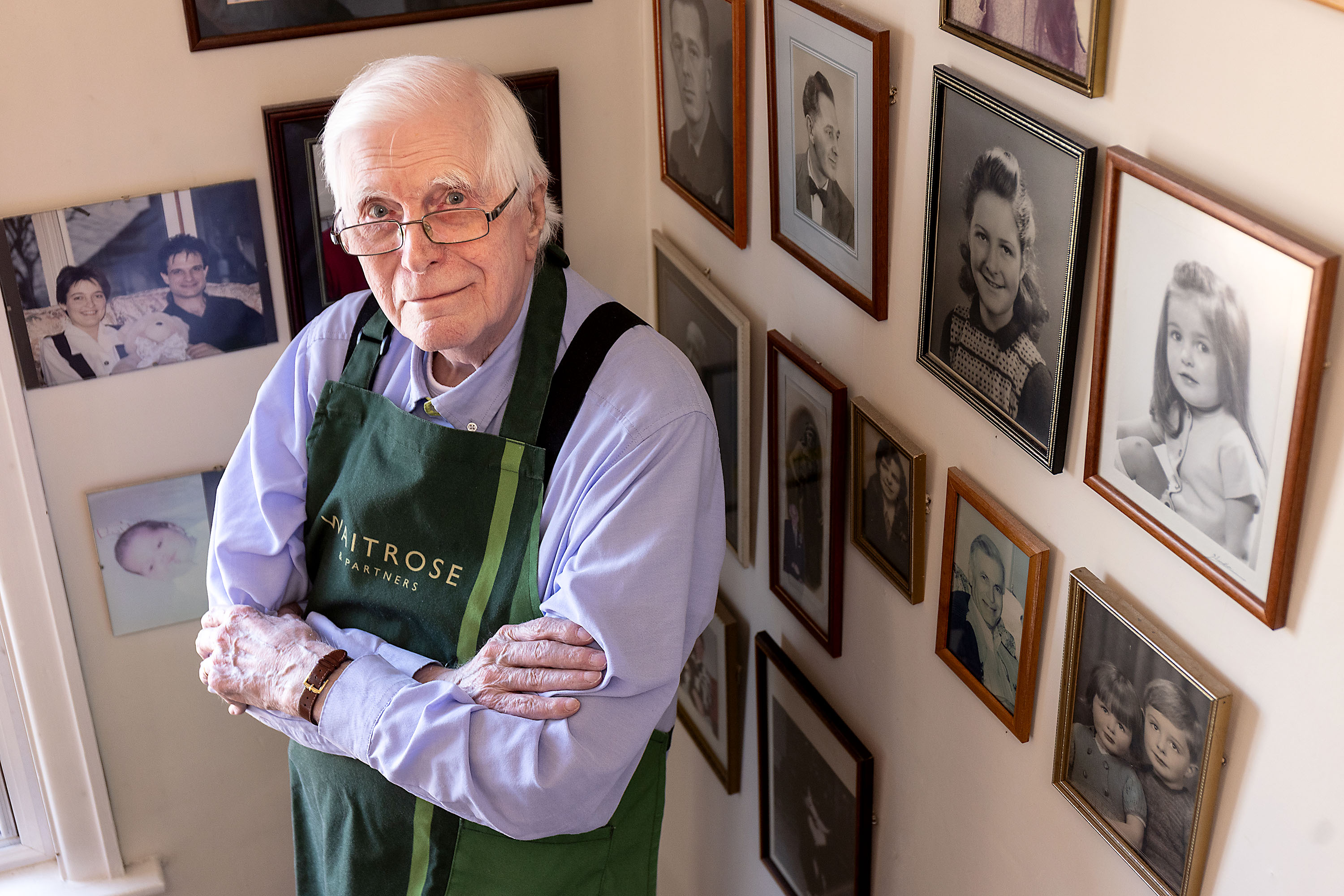Gone is the era of counting down the days until you turn 65 and can enjoy a quiet retirement in the pub or on the golf course.
A growing cohort of people are instead working well into their seventies and eighties, a report by Bupa has found, driven by a desire to stave off dementia and loneliness in old age.
One in four over-55s believe working past retirement age will help them to live longer, and workplaces are being encouraged to do more to retain these older staff.
Sir Charlie Mayfield, the former boss of John Lewis, said that keeping on pensioners made “good business sense” and could boost economic growth as the population ages.
Mayfield, who is leading a government review called Keep Britain Working, said it was vital to reverse a trend of over-50s dropping out of work due to musculoskeletal issues.
“Some of the older people we might lose are also some of the most experienced and the most skilled. When we’re looking at [economic] growth … it’s very, very important that we retain those people.”
Mayfield said it was “generally a really good thing” for people to work into their seventies or eighties. “It makes very good business sense for employers to encourage that. We are going to have an ageing workforce.
“Several areas of the economy which we’ve committed to being the source of growth have older-than-average workforces. If some of the people in those sectors can stay for longer, that will be helpful to them, helpful to their employers and helpful to the country as a whole.”
Mayfield was speaking at the launch of the Bupa Wellbeing Index, a report developed with the Health Foundation and Work Foundation, examining trends in workplace health.
The report found that workers were increasingly “re-evaluating the concept of retirement”, as remaining employed in later life had “substantial and often overlooked health benefits”.
A survey of 8,000 adults found that half of over-55s believed working past retirement age would help to keep their brains active, and one in four believed it could help them to live longer.
Some 13 per cent of over-50s have already returned to work after retirement, and one in five said they would consider doing so. These people report a stronger sense of purpose, and improved mental and physical health.
One such person is John Shipton, 94, who works three mornings a week on the checkouts at Waitrose’s Exeter branch.

John Shipton from Exeter, Devon, said his work at Waitrose was good for his mental health
MARK PASSMORE FOR THE TIMES
Shipton had retired from full-time work as a maintenance controller at 65 but applied for his job at Waitrose at the age of 80. The nonagenarian told The Times this year that the “pleasure of working” kept him going, adding: “Interactions with other people are so important in your life. It stops you going completely bananas.”
Research has shown that staying busy and active past the age of 65 is the key to healthy ageing, reducing the risk of several chronic diseases.
Rex Fan, Bupa’s lead behavioural insights specialist, said work “strengthens and builds the neurological pathways in our brains” which can lower the risk of conditions such as Alzheimer’s.
He added: “Keeping ourselves mentally challenged is crucial for building brain capacity and cognitive reserve, also known as neuroplasticity. Our brain is like a muscle so the more we challenge it the better, helping build strength that directly impacts our brain and mind.”
Employers are being encouraged to support an ageing workforce by adopting policies such as flexible hours to help with caring responsibilities, and offering private medical insurance so that any health problems are treated quickly. More than 440,000 over-50s retire early each year, and 1.3 million 50 to 64-year-olds are signed off with long-term sickness.
Carlos Jaureguizar, the Bupa chief executive, said: “We must recognise the immense value that every generation brings to the workforce. Our latest Bupa Wellbeing Index makes it clear that workplace health strategies must evolve to meet the needs of an ageing workforce. This is a shared responsibility for healthcare providers, employers, employees and government, where together we must build a healthier and more sustainable future of work.”
Ben Harrison, director of the Work Foundation at Lancaster University, said that workplaces should consider policies such as offering sabbaticals to take into account that “we will all be working for more years than previous generations”.
He said support was needed to enable older workers to shift careers, particularly in industrial areas where people “have spent years doing quite physical work and are not being supported to transition to other kinds of employment”.
The state pension age is currently 66, but is set to rise to 67 between 2026 and 2028, and then to 68 between 2044 and 2046.

